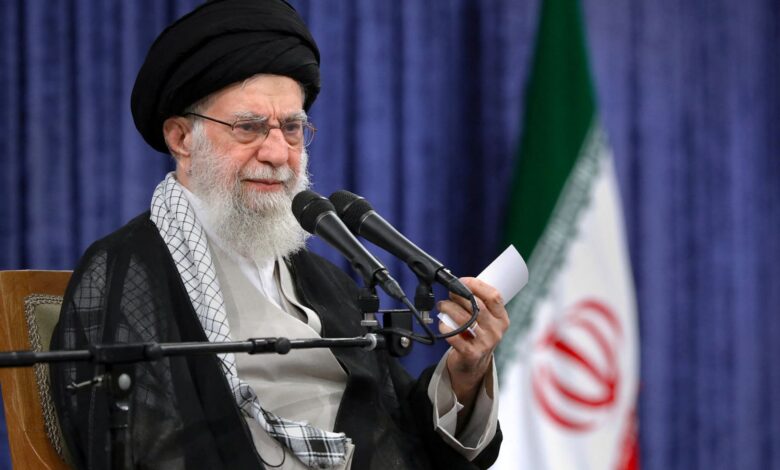Oil prices surge after Israel launches airstrikes against Iran

Iran’s Supreme Leader Ayatollah Ali Khamenei speaks during a meeting in Tehran, Iran, May 20, 2025. Office of the Iranian Supreme Leader.
Office Of The Iranian Supreme Le | Via Reuters
Crude oil futures jumped 10% Thursday evening after Israel launched airstrikes against Iran without U.S. support.
U.S. West Texas Intermediate rose 10.21%, to $74.99 per barrel, while global benchmark Brent surged 10.28%, to $76.48 per barrel.
Israel launched a “targeted military operation” against Iran’s nuclear and ballistic missile program, Israel Prime Minister Benjamin Netanyahu said in an address. Israel hit Iran’s main enrichment site at Natanz, its leading nuclear scientists, and struck the heart of its ballistic missile program, Netanyahu said.
“This operation will continue for as many days as it takes to remove this threat,” Netanyahu said.
U.S. Secretary of State Marco Rubio made clear that Israel had taken “unilateral action against Iran” without U.S. support. Rubio warned Iran against targeting U.S. interests.
“We are not involved in strikes against Iran and our top priority is protecting American forces in the region,” Rubio said in a statement. “Israel advised us that they believe this action was necessary for its self-defense.”
Israel’s Defense Minister Israel Katz declared a special state of emergency in Israel in anticipation of Iran launching a missile and drone attack in retaliation.
Iranian state media also reported that Hossein Salami, Commander-in-Chief of Iran’s Revolutionary Guards Corps [IRGC] was killed in the strikes.
Oil markets are now concerned that Iran will retaliate by attacking either Israeli or American targets, leading to a major military escalation and a potential oil supply disruption, said Andy Lipow, president of Lipow Oil Associates.
“Iran knows full well that President Donald Trump is focused on lower energy prices,” Lipow told CNBC, adding that actions by Iran affecting Middle Eastern oil supplies and consequently raising gasoline and diesel prices for Americans are politically damaging to the U.S. president.
The oil markets have largely been shrugging off geopolitical risks for the last year, so these recent developments are a “wake-up call” that these risks are more “tangible and imminent” than many expect, said Saul Kavonic, head of energy research at MST Marquee.
“But the attacks will see some form of retaliation, which could easily – even if unintentionally – spiral out of control,” said Kavonic, who cautioned that Thursday’s airstrikes may also embolden hardline elements in Iran that see further escalation become more likely.






